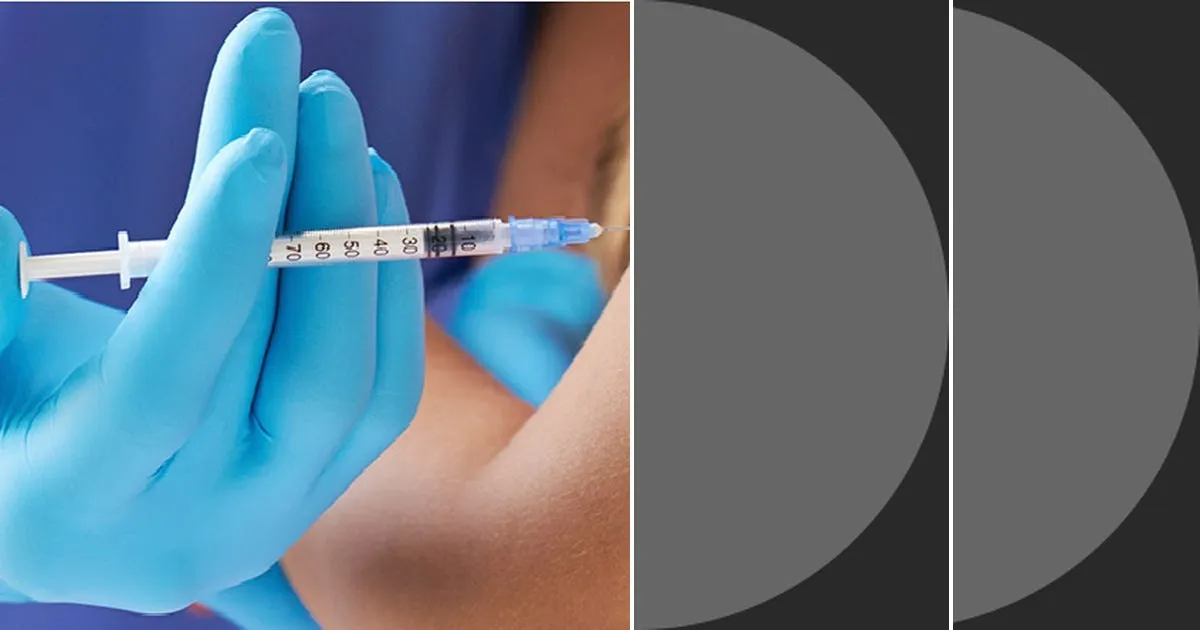What is Skin Whitening Injection
Skin whitening injections are a cosmetic procedure designed to lighten the skin tone by reducing the production of melanin, the pigment responsible for skin color. These injections typically contain substances like glutathione, vitamin C, and other antioxidants. They are administered intravenously or intramuscularly, and their popularity stems from the desire for a brighter, more even complexion. However, it is crucial to understand the potential risks, benefits, and regulations surrounding these treatments. The effectiveness and safety of skin whitening injections can vary significantly depending on the ingredients, dosage, and individual’s skin type and overall health. Before considering this procedure, it is paramount to consult with a qualified healthcare professional to discuss potential side effects, and to assess the suitability of the treatment for individual needs.
Benefits of Skin Whitening Injections
Proponents of skin whitening injections often highlight potential benefits, the primary one being a lighter skin tone. Users may experience a reduction in dark spots, hyperpigmentation, and uneven skin tone, leading to a brighter and more radiant complexion. Some formulations include antioxidants that can help improve skin health, reduce free radical damage, and enhance skin elasticity. Beyond aesthetic benefits, the process may boost self-esteem and confidence for those who desire a lighter skin tone. However, it is essential to consider that these injections are not a cure-all and may not yield the same results for everyone. It’s also worth noting that the long-term effects and the safety profile may vary based on the specific ingredients and individual characteristics.
Top 5 Skin Whitening Injections

The market offers a range of skin whitening injections, each with its own blend of active ingredients and claimed benefits. Identifying the ‘best’ often depends on individual skin types, needs, and goals. It’s crucial to conduct thorough research and consult with a medical professional to determine the most suitable option. Here are five popular choices, but remember that the effectiveness and safety can vary based on the specific formulation and individual response. Always prioritize professional medical advice before undergoing any cosmetic procedure to ensure the best and safest outcome for your skin and overall well-being. Make sure it should be the one that suits your needs.
Glutathione Injections
Glutathione is a powerful antioxidant naturally produced by the liver. In skin whitening injections, it is used for its potential to lighten skin by inhibiting melanin production. Glutathione helps to convert melanin to a lighter color and deactivates the enzyme tyrosinase, which is essential for melanin production. This process can lead to a gradual lightening of the skin. The effectiveness of glutathione injections can vary depending on the dosage, frequency of injections, and individual factors. Some people experience noticeable results, while others may see minimal changes. It’s worth noting that glutathione injections are not without risks, and side effects can include allergic reactions and changes in skin tone.
How Glutathione Works
Glutathione’s mechanism of action involves several key steps. First, it acts as a potent antioxidant, neutralizing free radicals that can damage skin cells and contribute to skin darkening. Second, glutathione inhibits tyrosinase, an enzyme crucial for melanin production, effectively slowing down melanin synthesis. Third, it helps convert eumelanin (dark melanin) to pheomelanin (lighter melanin), further contributing to skin lightening. The effectiveness of glutathione depends on factors like the dosage, frequency of injections, and the individual’s skin type and response. It’s important to consult with a healthcare professional to discuss the potential benefits and risks, as well as to determine the most appropriate treatment plan.
Vitamin C Injections

Vitamin C, also known as ascorbic acid, is another key ingredient in many skin whitening injections. Vitamin C is a powerful antioxidant that helps protect the skin from damage caused by free radicals. In the context of skin lightening, vitamin C aids in inhibiting melanin production and promoting collagen synthesis, which can improve skin tone and texture. While vitamin C injections can contribute to a brighter complexion, the results may be subtle compared to glutathione injections. However, vitamin C injections are often considered a safer option due to fewer potential side effects. As with any cosmetic procedure, it is essential to consult with a healthcare professional to discuss the potential benefits, risks, and suitability for your skin.
The Role of Vitamin C
Vitamin C plays several roles in skin lightening. Primarily, it is an antioxidant that protects the skin from damage and reduces inflammation, which can contribute to uneven skin tone. It helps inhibit tyrosinase, the enzyme involved in melanin production, thereby reducing the formation of dark spots and hyperpigmentation. Vitamin C also promotes collagen production, enhancing skin elasticity and improving overall skin texture. This can result in a brighter, more youthful appearance. The effectiveness of vitamin C injections depends on factors like dosage, frequency, and individual skin characteristics. However, it’s important to note that the results can vary, and it is essential to consult with a healthcare professional to understand the potential benefits and risks.
Alpha-Lipoic Acid Injections
Alpha-lipoic acid (ALA) is a potent antioxidant used in skin whitening injections to help improve skin tone and texture. ALA works by reducing inflammation, protecting against free radical damage, and potentially inhibiting melanin production. It also aids in regenerating other antioxidants like vitamin C and glutathione, amplifying their effects. ALA can contribute to a brighter complexion and improved skin health. However, its effects on skin lightening are often less pronounced than those of glutathione or vitamin C. It is essential to consult a healthcare professional before considering ALA injections to discuss the potential benefits, risks, and to assess the suitability for individual needs. Make sure to seek the best advice from a professional.
Understanding Alpha-Lipoic Acid

Alpha-lipoic acid (ALA) is a naturally occurring compound in the body with powerful antioxidant properties. It neutralizes free radicals, reducing oxidative stress and potential damage to skin cells. In skin whitening treatments, ALA may contribute by reducing inflammation, improving skin texture, and potentially inhibiting melanin production. It also helps regenerate other antioxidants like vitamin C and glutathione, amplifying their effects. The effectiveness of ALA injections in skin lightening can vary, and results are often subtle. It’s essential to consult with a healthcare professional to understand the potential benefits and risks and to determine whether ALA injections are suitable for your skin. Moreover, the combination of ALA with other ingredients in skin whitening injections can also be beneficial.
Benefits and Risks
Skin whitening injections offer the potential for a lighter, more even skin tone, reduced hyperpigmentation, and enhanced skin health. Users often report increased confidence and satisfaction with their appearance. However, it’s crucial to acknowledge the risks associated with these procedures. Potential side effects include allergic reactions, skin discoloration, infection, and, in some cases, more severe health complications. The long-term effects of some ingredients are not fully understood, and the safety of these injections depends on the specific formulation, dosage, and individual health. It is essential to consult a healthcare professional, discuss potential risks and benefits, and ensure that the treatment is administered by a qualified professional in a sterile environment. Furthermore, research and understand the regulations in your area regarding the use of skin whitening injections.
Who is a Good Candidate
Ideal candidates for skin whitening injections are individuals with hyperpigmentation, uneven skin tone, or those seeking a lighter complexion. Good candidates should have realistic expectations about the results, understanding that skin lightening is a gradual process and the results vary. It is essential that candidates have a healthy medical history without any active skin infections or other health conditions that could be exacerbated by the injections. Individuals with a history of allergies or sensitivity to any of the ingredients should avoid these treatments. Before undergoing any skin whitening procedure, it is essential to consult with a qualified healthcare professional to determine whether the treatment is appropriate and to discuss any potential risks. Also, understanding and accepting the procedure’s risks and benefits are very important.
Potential Side Effects

Skin whitening injections, while potentially offering cosmetic benefits, can cause several side effects. Common side effects include skin irritation, redness, swelling, and bruising at the injection site. More serious complications may arise, such as allergic reactions to the ingredients, which can manifest as hives, itching, or difficulty breathing. Other potential risks include infection, changes in skin pigmentation, and, in some cases, more severe health issues. The long-term effects of some ingredients are not fully understood, and the safety of these injections depends on factors like the formulation, dosage, and individual health. Before considering these injections, it is essential to discuss the potential side effects with a healthcare professional and seek treatment from a qualified provider to minimize risks.
Cost and Availability
The cost of skin whitening injections varies based on the type of injection, the clinic or provider, and the geographic location. Generally, the price ranges from a few hundred to several thousand dollars per treatment session, and multiple sessions are often required to achieve the desired results. The availability of these injections varies depending on the country and local regulations. Some regions have strict regulations on skin whitening procedures, while others may have fewer restrictions. Researching and choosing a reputable clinic or provider with a good track record is essential. It is crucial to ensure that the clinic uses safe, regulated products and that the injections are administered by a qualified healthcare professional. The price is always a factor, but safety should be your top priority.
Where to Get Skin Whitening Injections
Skin whitening injections should be obtained from reputable clinics or licensed healthcare providers, such as dermatologists or qualified medical spas. Verify that the clinic or provider follows all necessary safety protocols, including the use of sterile equipment and licensed professionals. Research and choose a clinic with a positive reputation, good reviews, and experience in administering these injections. Check for proper licensing, certifications, and insurance. Avoid clinics or providers offering these treatments at significantly lower prices than the market average, as this could indicate the use of substandard products or practices. Before undergoing any procedure, ensure the clinic has a consultation process where your health and suitability are assessed, and all potential risks and benefits are discussed. Look for a place that is transparent and professional.
Consulting with a Professional

Before considering skin whitening injections, consult with a dermatologist or a qualified healthcare professional. This consultation is vital to assess your skin type, medical history, and suitability for the treatment. The professional will discuss your expectations, potential risks, and benefits, and help you understand the procedure. They will evaluate your skin condition, identify any underlying issues, and determine the appropriate ingredients and dosages. Ask questions and voice any concerns you may have. A consultation helps ensure that you are fully informed and prepared for the procedure. Additionally, the professional will guide you through pre-treatment and post-treatment care to maximize results and minimize risks. Choosing a qualified healthcare professional can make all the difference, and help ensure that you receive safe and effective treatment.
